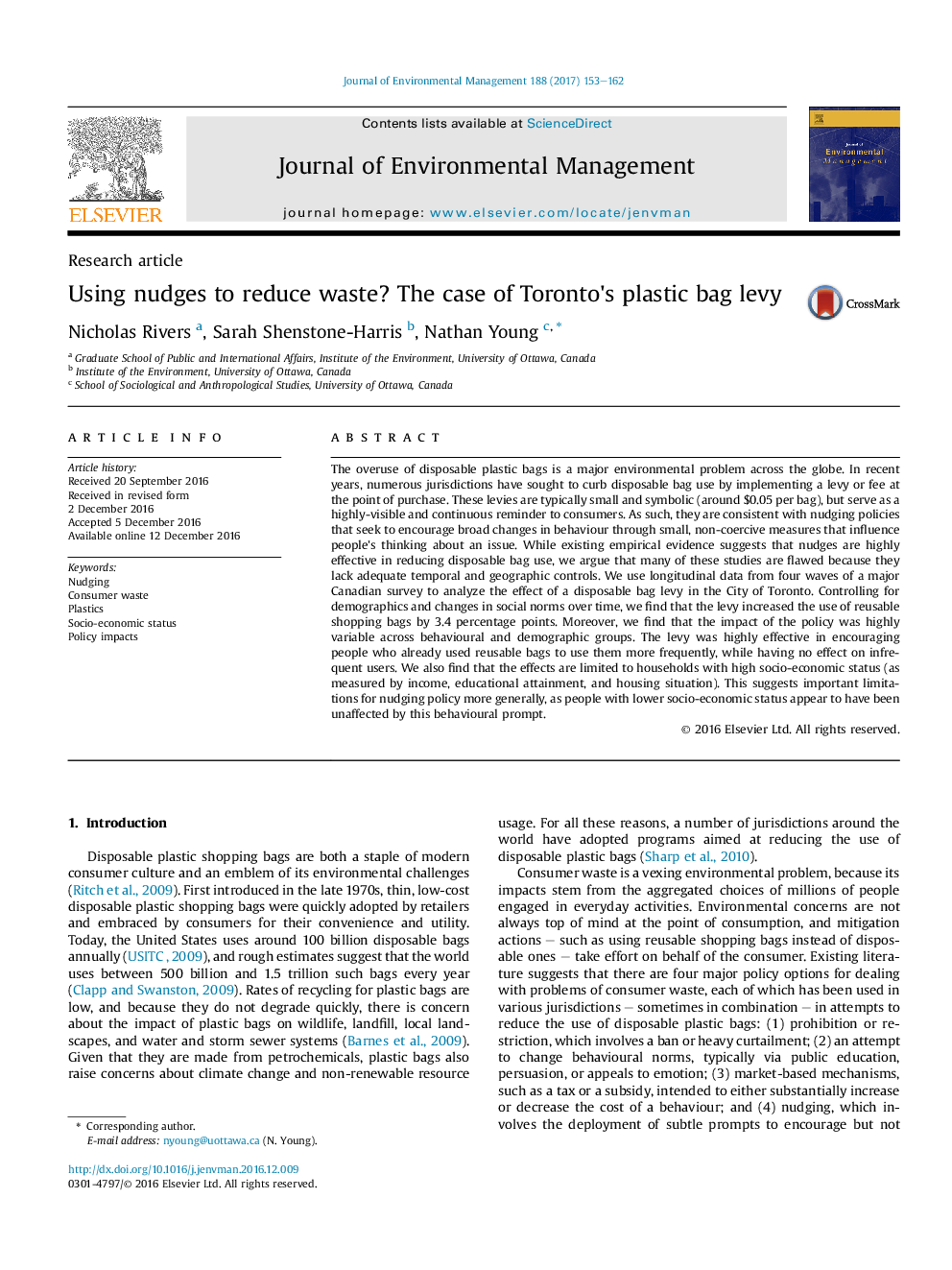| کد مقاله | کد نشریه | سال انتشار | مقاله انگلیسی | نسخه تمام متن |
|---|---|---|---|---|
| 5117133 | 1485227 | 2017 | 10 صفحه PDF | دانلود رایگان |
- Nudging policy has become popular as a non-coercive way to promote change.
- We investigate the effects of an economic nudge on reusable shopping bag use.
- The difference-in-difference analysis yields a smaller effect than other studies.
- The effects of nudging are highly unequal, particularly across social classes.
- This suggests limitations for nudging policy more generally.
The overuse of disposable plastic bags is a major environmental problem across the globe. In recent years, numerous jurisdictions have sought to curb disposable bag use by implementing a levy or fee at the point of purchase. These levies are typically small and symbolic (around $0.05 per bag), but serve as a highly-visible and continuous reminder to consumers. As such, they are consistent with nudging policies that seek to encourage broad changes in behaviour through small, non-coercive measures that influence people's thinking about an issue. While existing empirical evidence suggests that nudges are highly effective in reducing disposable bag use, we argue that many of these studies are flawed because they lack adequate temporal and geographic controls. We use longitudinal data from four waves of a major Canadian survey to analyze the effect of a disposable bag levy in the City of Toronto. Controlling for demographics and changes in social norms over time, we find that the levy increased the use of reusable shopping bags by 3.4 percentage points. Moreover, we find that the impact of the policy was highly variable across behavioural and demographic groups. The levy was highly effective in encouraging people who already used reusable bags to use them more frequently, while having no effect on infrequent users. We also find that the effects are limited to households with high socio-economic status (as measured by income, educational attainment, and housing situation). This suggests important limitations for nudging policy more generally, as people with lower socio-economic status appear to have been unaffected by this behavioural prompt.
Journal: Journal of Environmental Management - Volume 188, 1 March 2017, Pages 153-162
